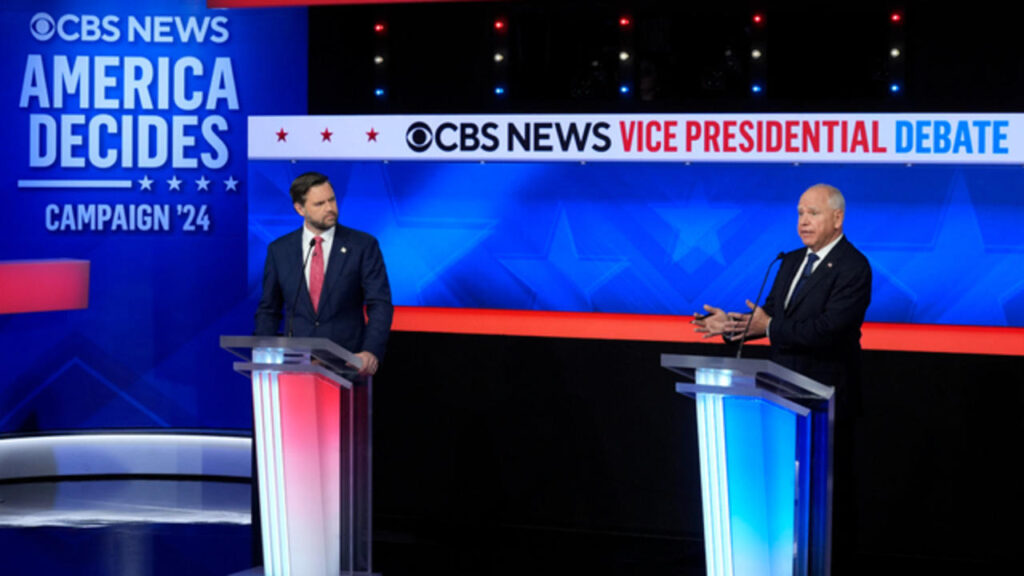
Internal NFFE News
October 3, 2024
The first and only vice presidential debate for the 2024 election took place Oct. 1 hosted by CBS News.
Moderators Nora O’Donnell and Margaret Brennan guided former president Donald Trump’s running mate senator JD Vance and vice president Kamala Harris’ running mate governor Tim Walz through questions about the economy, reproductive rights, the Middle East and more.
There are also some key takeaways for federal employees that were brought up in the debate.
Both candidates established their positions with Walz describing himself as a “union guy” and Vance stating his belief in the need for a “robust” and well functioning government. However, they expressed different views on how to best serve federal employees and how the federal government should function at large.
On the topic of immigration, the two vice presidential candidates agreed: border security needs to be strengthened. Vance echoed Trump’s sentiments of mass deportation for undocumented immigrants, but did not give specific details of how this would be carried out. Walz stated that his administration would hire 1,500 new Border Patrol agents, but there are still hiring challenges present.
Emergency response was discussed in part due to the recent Hurricane Helene and the widespread damage it caused. Walz said that state and local governments should take the lead on disaster relief with the federal government taking steps to provide support and resources necessary. Vance said “we want as robust and aggressive a federal response as we can get.”
The discussion of federal land management highlighted a divide. Vance discussed Trump’s previously stated plan to develop housing on federal lands that “aren’t being used for anything” – he specified that this does not include national parks. Walz argued that this proposition would not solve housing shortages in many of the nation’s most populated areas where this crisis is more extreme, using Minneapolis as an example.
Lastly, the peaceful transition of power was discussed. There were disagreements between Vance and Walz about whether or not Trump respected this transition in 2020, Vance stating that Trump deserved recognition because he “peacefully gave over power on Jan. 20.” According to a recent Government Executive article, “Transition efforts for 2024 are well underway and while both campaigns have named transition team leaders, Trump has yet to accept the formal services the federal government offers to both campaigns.”
